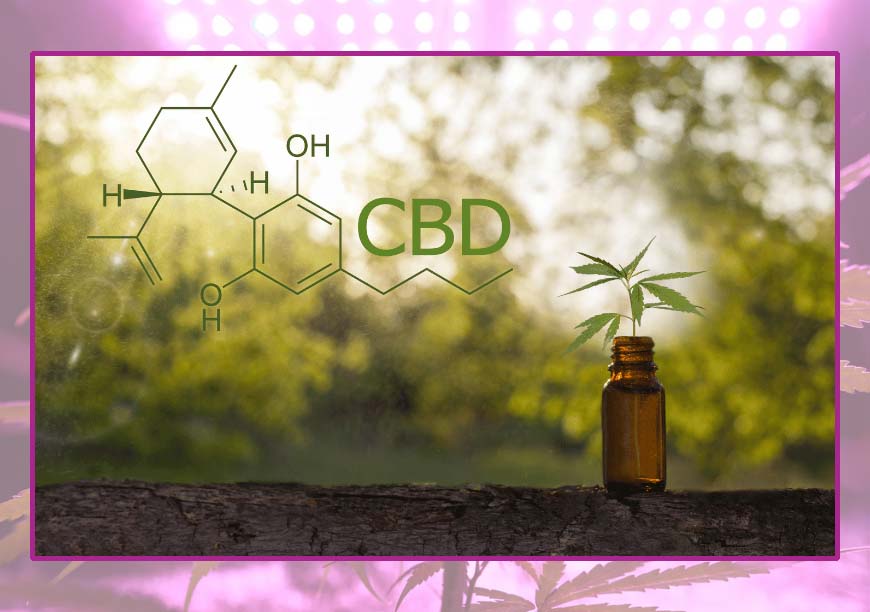Blog Details

It's now known that CBD has beneficial effects on health, but what else?
- Georgia
- Health & Beauty
You should know that CBD is legal and can buy the best CBD oil online. What tangible benefits does it have? And its consequences?
But what is CBD?
Cannabidiol is a component found naturally in cannabis plants. As such, it can be converted to THC both naturally and artificially.
There is an excellent knowledge of the toxic effects of THC, both organically and mentally, considering it an illegal drug due to its consequences on people's health (addiction, psychosis, delusions, secondary depression, apathy...).
However, another of the main components of cannabis (although it is found in plants in a smaller proportion than THC) is CBD, whose main effect is to reduce pain without causing (when taken as the only element) dependence or addiction.
Lots of sources are beginning to talk about its possible multiple benefits, but what about the consequences? First, let us take into account what the latest study published by the World Health Organization comments. It should begin by mentioning that it has positive effects or the absence of adverse effects. However, it also produces negative consequences when taken with other medications (prescribed or not).
In addition, it has been observed that there are two conditions under which it can be transformed into THC or illegal psychotropic.
One of them is through laboratory experimentation, while the other is determined naturally by the personal digestive process when CBD is administered in pill form. This aspect does not occur when administered in oil form.
In any case, the investigations are recent and more studies are still required to determine the integrity of the results.
effects that affect health (both positive and negative), such as:
- - The effect on embryonic development is unknown.
- - There are studies with conflicting results regarding the influence on hormonal changes, where some studies show adverse effects, while others do not show effects of any kind
- - No effects regarding behavioural changes are observed at low doses, although at high doses.
- - Some studies determine suppression of the immune system at high doses, while other studies show that lower doses improve it
- - Mixed with other medications, it impairs the functioning of the prescribed drug.
- - Does not generate tolerance or dependency.
Nevertheless, taking these results into account, its effectiveness is being evaluated in other medical conditions, such as the treatment of anxiety, as an antipsychotic, analgesic or anti-inflammatory. Still, clinical trials are less advanced or show little scientific evidence.
It is also valued to continue with their studies for more severe diseases such as Alzheimer's, Parkinson's, multiple sclerosis, rheumatism, or Crohn's disease, which until now have been very scarce or have incongruent results.
Currently, CBD is not on the list of medicines approved by the World Health Organization, and there is no legal authorization for its recreational or medical use. Nevertheless, scientific data and results must be taken into account and detractors or not, considering that science is advancing and that it must always be taken into account that the objective is the health of the person and not their deterioration.
'Medical cannabis' and the creams and other products on sale today do not have a sufficient and valid scientific basis demonstrating their benefits, so the risk that exists when using it must be assessed and made apparent use it without any control. It is essential to find out about its intake, and take special care when suffering from a more severe disease, especially when under another type of pharmacological prescription.
Nevertheless, taking these results into account, its effectiveness is being evaluated in other medical conditions, such as the treatment of anxiety, as an antipsychotic, analgesic or anti-inflammatory. Still, clinical trials are less advanced or show little scientific evidence.
It is also valued to continue with their studies for more severe diseases such as Alzheimer's, Parkinson's, multiple sclerosis, rheumatism, or Crohn's disease, which until now have been very scarce or have incongruent results.
Currently, CBD is not on the list of medicines approved by the World Health Organization, and there is no legal authorization for its recreational or medical use. Nevertheless, scientific data and results must be taken into account and detractors or not, considering that science is advancing and that it must always be taken into account that the objective is the health of the person and not their deterioration.
'Medical cannabis' and the creams and other products on sale today do not have a sufficient and valid scientific basis demonstrating their benefits, so the risk that exists when using it must be assessed and made apparent use it without any control. It is essential to find out about its intake, and take special care when suffering from a more severe disease, especially when under another type of pharmacological prescription.